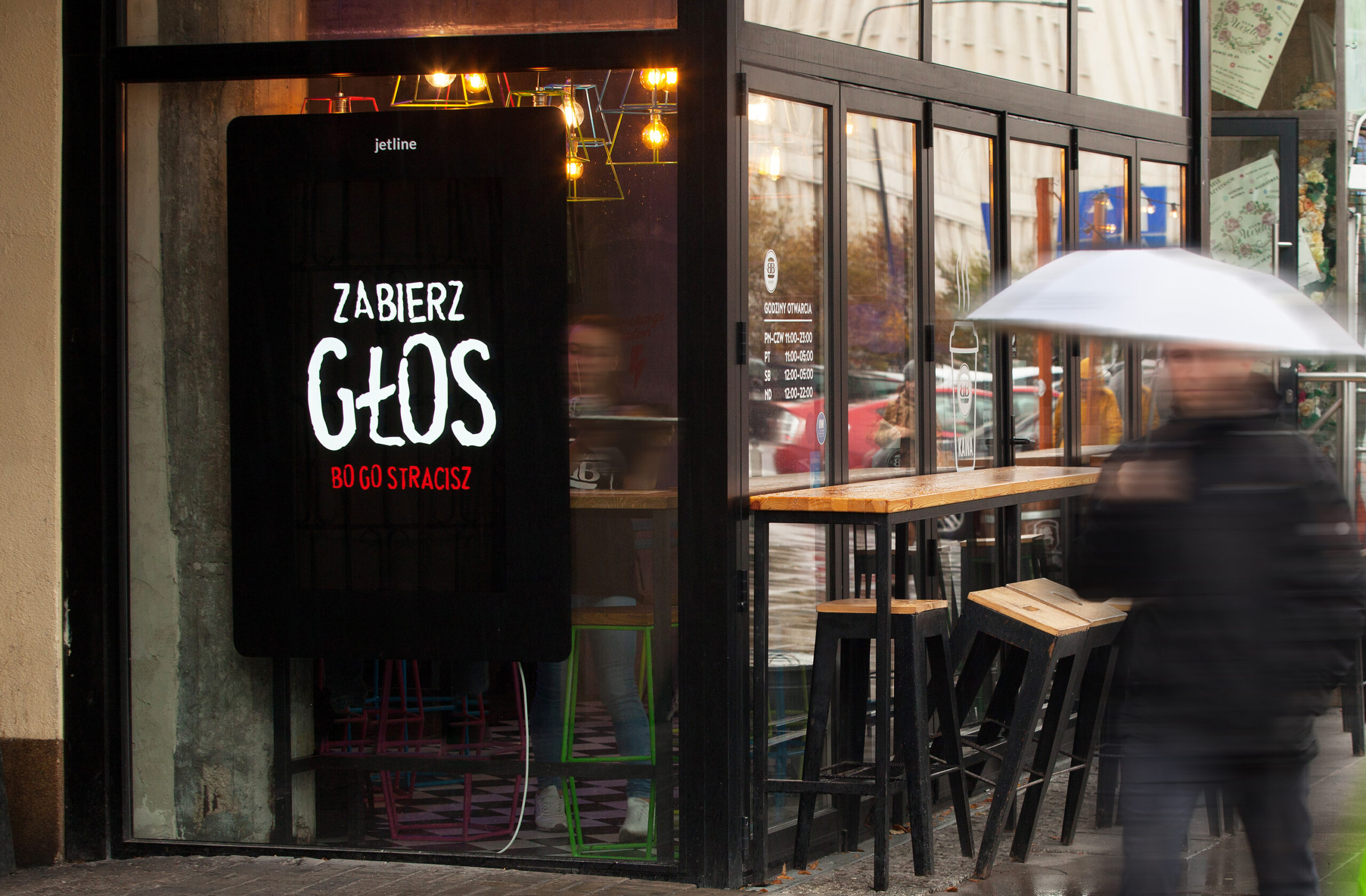Elections in OOH
In two months, parliamentary elections will take place. From a communication perspective, elections are a topic like any other for advertising. A candidate or party is a product, advertised like any other.
Except that's not the case.
The people who will be elected will decide about my, your, and everyone's daily life for the next few years. And it doesn't matter whether I, you, or anyone else voted for them. Leaving aside ideas and values - elections are about influence, power, and money. Someone will gain them, someone will lose them. And that's emotional.
Elections are a privilege, they're important, and we need to remind people of that.
That's why voter turnout campaigns are organized. Because to go and vote – first you need to know there are elections, appreciate this privilege and right, understand the significance of participating in elections, and accept your own responsibility for the decision made or not made. Voter turnout in Poland is usually one of the lowest, which is why non-governmental organizations and associations encourage and mobilize voters, delivering a practical lesson in civic education.
Elections in the Media. Choice of Media
The battle for voters' attention and favor takes place across all media, and there are no elections without their involvement. The purpose of an election campaign is to provide voters with information that will help them make a decision. Media serves this purpose, among others, but the phrase "choice of media" is ambiguous.
When it comes to choosing OOH as a tool for election campaigns, it's often during elections that we see the level of respect for public space and knowledge of local regulations, such as landscape resolutions. It often turns out that "rules are rules," but my poster must be more visible than my opponent's, and then all tactics are fair game.
Political Elections on Jet Line Media
We create space for communication – we formulated Jet Line's mission many years ago, and it usually simplifies matters. Our task and the task of our medium is to communicate issues, convey information, connect brands, ideas, products, and people.
As a society, we generally agree that everyone has the right to information and to make sovereign decisions. Therefore, OOH is a space for communication, and outdoor campaigns are its tool.
Communication in any form is a multi-faceted phenomenon, and responsibility is one aspect. In principle, this is the responsibility of the sender, the author of the message, and we clearly emphasize this aspect in our "Terms of Cooperation" document, on which we base our contracts. It describes, among other things, situations in which we reserve the right to refuse poster display, which of course applies to any advertisement, not just political ones.
It happens that what our outdoor advertising media present stirs emotions, and it so happens that these are most often campaigns of a political nature.
The Implementation of Political Campaigns at Jet Line Looks Normal, like this:
- On Motorway billboards, we run political campaigns under the same conditions as all others – with the caveat that in agreements with some landowners where billboards are located, we have clauses excluding political campaigns. We always respect these.
- Everyone in the company has their own political sympathies and antipathies. However, we don't have a policy excluding any political groups. We believe our role is to create space for communication and inform about possibilities. Our implementation of political campaigns is not an expression of anyone's political convictions.
- So it may happen that campaigns from parties and candidates from different political groups will appear on our media at the same time.
- On MORE screens, we do not run political campaigns, meaning campaigns of any political parties or any candidates.
- Political campaigns, especially during election time, often have specifically designed content. We don't interfere with it unless it contradicts our "Terms of Cooperation," is illegal, vulgar, or goes against good customs. After internal discussion and consultation with our legal office, we inform about the reasons for refusing to run a campaign in that form.
- It happens that OOH companies are attacked for displaying content from a particular party on their media. There are accusations of censorship, and since they come from all sides, we consider this confirmation of a correctly made decision: we are a space for communication, and if you – dear party, dear candidate – don't break the law or good customs, we will run your campaign just as professionally as we do for your adversaries.
- With every election, we eagerly await intelligent, smart, interesting, lively, and attractive graphic designs.
- A separate category above parties and elections are voter turnout campaigns. We are very happy to support them, believing that the engagement and social responsibility of each of us is crucial. We don't consider them political campaigns.

